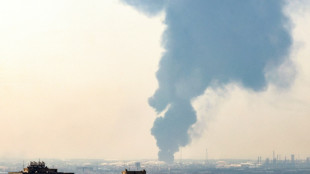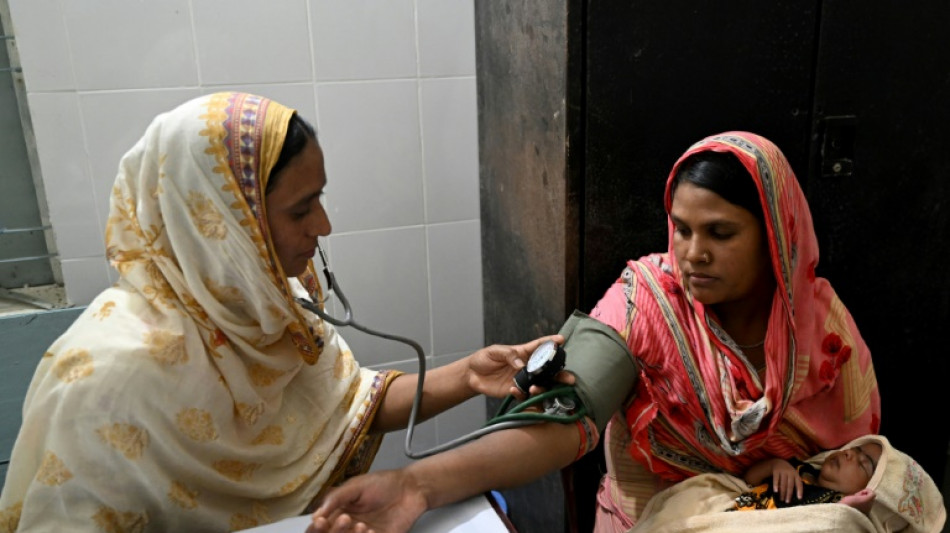
-
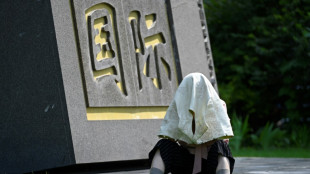 Beijing issues weather warning for hottest days of year
Beijing issues weather warning for hottest days of year
-
Tehran hit by Israeli attacks, vows response to US strikes
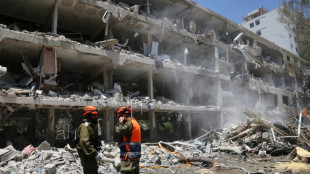
-
 New CEO of Jeep owner Stellantis starts with leadership shake-up
New CEO of Jeep owner Stellantis starts with leadership shake-up
-
Russian drone and missile barrage kills eight in Kyiv
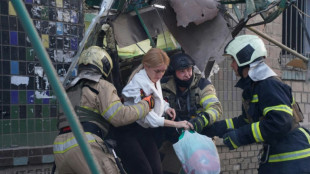
-
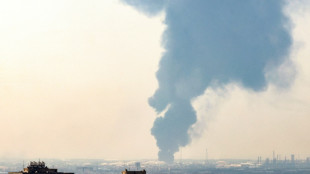 Oil dips, dollar firms after US strikes in Iran
Oil dips, dollar firms after US strikes in Iran
-
Paris Olympics and Paralympics cost taxpayer nearly 6 bn euros: state body

-
 Eurozone business activity almost flat again in June
Eurozone business activity almost flat again in June
-
In Norway's Arctic, meteorologists have a first-row seat to climate change

-
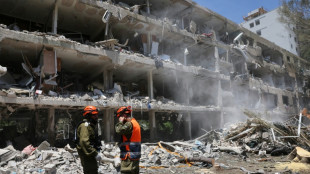 Iran vows retaliation for US strikes as Israel keeps up attacks
Iran vows retaliation for US strikes as Israel keeps up attacks
-
Russian drone and missile barrage on Kyiv kills seven
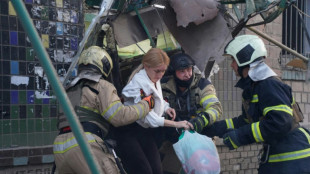
-
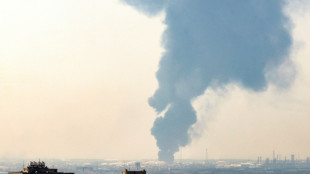 Oil rises, dollar firms after US strikes in Iran
Oil rises, dollar firms after US strikes in Iran
-
'Noble to attend': Budapest prepares for 'banned' Pride march

-
 Art market banking on new generation of collectors
Art market banking on new generation of collectors
-
Turning 80, UN faces fresh storm of doubts
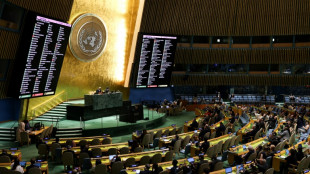
-
 'A great start': NBA crown just the beginning for Shai
'A great start': NBA crown just the beginning for Shai
-
Man City hit six to reach Club World Cup last 16, Real Madrid win with 10 men

-
 Iran vows retaliation after US strikes on nuclear sites
Iran vows retaliation after US strikes on nuclear sites
-
'Massive' Russian attack on Kyiv kills at least five: Ukraine
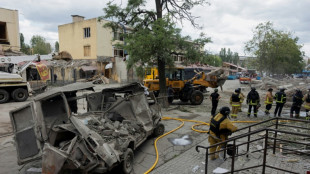
-
 Groundbreaking Vera Rubin Observatory reveals first images
Groundbreaking Vera Rubin Observatory reveals first images
-
Thunder beat Pacers in game seven, cap stunning season with NBA crown

-
 Pacers 'hearts dropped' after Haliburton injury: Carlisle
Pacers 'hearts dropped' after Haliburton injury: Carlisle
-
Ukraine says 'massive' Russian attack on Kyiv
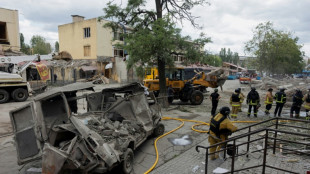
-
 Thunder's Gilgeous-Alexander named NBA Finals MVP
Thunder's Gilgeous-Alexander named NBA Finals MVP
-
Thunder beat injury-hit Pacers in game seven to win NBA title

-
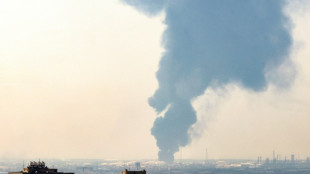 Oil prices spike after US strikes on Iran
Oil prices spike after US strikes on Iran
-
Man City demolish Al Ain to reach Club World Cup last 16

-
 Thunder beat Pacers to clinch first NBA Finals crown
Thunder beat Pacers to clinch first NBA Finals crown
-
Bone collectors: searching for WWII remains in Okinawa
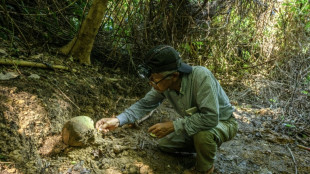
-
 Madrid coach Alonso says Rudiger complained of racist insult in Club World Cup win
Madrid coach Alonso says Rudiger complained of racist insult in Club World Cup win
-
Girls shouldn't shout?: Women break the mould at French metal festival

-
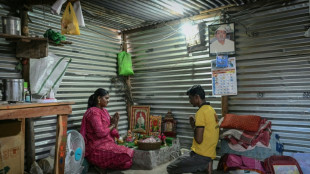 Indian activists seek to save child brides
Indian activists seek to save child brides
-
Jonathan Anderson set for Dior debut at Paris Fashion Week

-
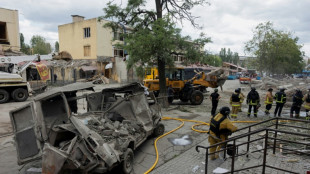 Ukraine says 'massive' Russian drone attack on Kyiv
Ukraine says 'massive' Russian drone attack on Kyiv
-
Oasis: from clash to cash

-
 Toxic threat from 'forever chemicals' sparks resistance in Georgia towns
Toxic threat from 'forever chemicals' sparks resistance in Georgia towns
-
All Blacks name five debutants in squad for France Tests

-
 Pacers' Haliburton hurt early in game seven against Thunder
Pacers' Haliburton hurt early in game seven against Thunder
-
Suicide attack on Damascus church kills at least 22

-
 French police probe fake Disneyland 'marriage' with nine-year-old
French police probe fake Disneyland 'marriage' with nine-year-old
-
Ohtani bags strikeouts, home run as Dodgers rout Nats

-
 Hall of Fame trainer Lukas ill, won't return to racing: Churchill Downs
Hall of Fame trainer Lukas ill, won't return to racing: Churchill Downs
-
US Ryder Cup captain Bradley edges Fleetwood to win PGA Travelers

-
 Alonso says Rudiger complained of racist insult
Alonso says Rudiger complained of racist insult
-
Minjee Lee wins Women's PGA Championship for third major title

-
 US bases in the Middle East
US bases in the Middle East
-
More than 20 killed in suicide attack on Damascus church

-
 Ten-man Real Madrid show class in Pachuca win
Ten-man Real Madrid show class in Pachuca win
-
Blood, destruction at Damascus church after suicide attack

-
 Tesla launches long-discussed robotaxi service
Tesla launches long-discussed robotaxi service
-
Palou wins at Road America to boost IndyCar season lead


Women spearhead maternal health revolution in Bangladesh
Young Bangladeshi mother Mafia Akhter's decision to give birth at home and without a doctor left her grieving over her firstborn's lifeless body and vowing never to repeat the ordeal.
"My first baby died," the 25-year-old told AFP. "I told myself that if I didn't go to the clinic it could happen again, and that I wouldn't be able to bear it."
She gave birth again last month at a medical centre in a village hemmed in by rice paddy and rivers, far from the nearest hospital and without the oversight of an obstetrician.
But this time her child survived -- something she credits to Nargis Akhter, one of the thousands of Bangladeshi women working as "skilled birth attendants" to help mothers through delivery.
"Giving birth is the most important and critical moment for a woman," Nargis -- no relation to her patient -- told AFP.
"I am lucky and proud to be able to be with them at that moment."
Nargis was speaking to AFP after her routine post-natal consultation with Mafia, who was cradling her young daughter during her return to the spartan village health centre where she gave birth.
Skilled birth attendants have been a fixture of Bangladesh's maternal health policy for two decades and are an important pillar of the South Asian nation's underfunded health system.
More than 30 percent of Bangladeshi women nationally give birth without the assistance of a doctor, nurse or midwife, according to government data from 2022 Demographic and Health Survey.
Birth attendants like Nargis, 25, are given several months training and put to work plugging this gap by serving in a jack-of-all-trades role akin to a cross between a nurse and a doula.
The use of skilled birth attendants has coincided with dramatic improvements to maternal health outcomes in Bangladesh.
Over the past 20 years, the mortality rate for pregnant women has fallen by 72 percent, to 123 deaths per 100,000 births and babies by 69 percent to 20 deaths per 100,000 births, according to the World Health Organization (WHO).
"Many women do not have access to quality care, so I feel useful by helping them," said Nargis, who in her five years as a birth attendant has overseen more than 400 deliveries.
"Almost no women die in childbirth here anymore," she added.
"For me, that's the most important thing."
- 'It takes time' -
Besides helping with deliveries, birth attendants will screen pregnant women weeks ahead of their due date to refer high-risk pregnancies to hospitals further afield.
For women in Biswambharpur, the remote district that Mafia and Nargis call home, complicated cases will wind up in a district hospital struggling with inadequate resources.
"We never leave a patient without care, but they sometimes have to wait a long time for treatment," said Abdullahel Maruf, the hospital's chief doctor.
"Plus, we can't change the geography. In an emergency, it takes time to get to us."
Biswambharpur is lashed by monsoon rains for months each year that make travel difficult, and a lack of paved roads mean that many of its villages are inaccesible by the district's only ambulance, even during the drier months.
Maruf's hospital sees up to 500 patients each day and still has around eight women die in labour each year -- fatalities he says are avoidable, given that his emergency department lacks an obstetrician and backup surgeon.
"We could easily reduce this figure if we had all the required staff," he said.
Maruf said that mortality rates had nonetheless improved by an awareness campaign encouraging women to give birth at local health clinics rather than at home.
"This is our greatest victory," he said.
Bangladesh spends only 0.8 percent of its GDP on public health, a figure that Maya Vandenent of the UN children's agency said risked stalling the country's improvements to maternal health.
"Huge progress has been made," she told AFP. "But the movement is slowing down."
Sayedur Rahman, a physician overseeing Bangladesh's health ministry, freely concedes that more health funding is far from the top of the agenda of the government he serves.
The country is still reeling from the dramatic ouster of autocratic ex-premier Sheikh Hasina last August during a student-led national uprising.
Rahman is part of an interim administration tasked with steering democratic reforms ahead of fresh elections, and he laments that these priorities will leave others in the health sector unaddressed.
"We need resources to create a national ambulance network, recruit more anesthesiologists, open operating rooms," Rahman told AFP.
"Our financial constraints will directly impact maternal and neonatal mortality rates."
G.AbuGhazaleh--SF-PST

